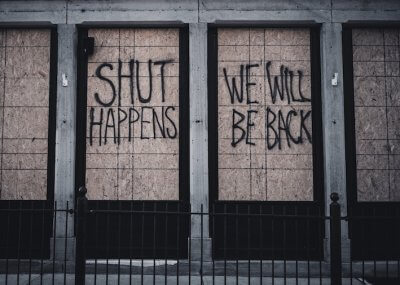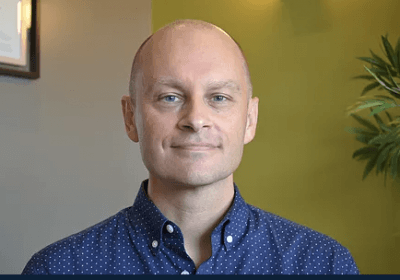Your Rest and Reward System: Why Life Change Can Leave You Unmotivated

By: J m
by Rob Stanley
Recently had a life change or been made redundant and wondering where your motivation went? Learning about your personal rest cycle and reward system can be essential.
Your reward system
We all know what rest is and why it is important. Good sleep is essential to mental and physical wellbeing.
But what about our reward system? It’s the brain circuitry that keeps us motivated. Even just expecting a reward activates neurons that release the feel-good neurotransmitter dopamine.
“Any object, event, or activity can be a reward if it motivates us, causes us to learn, or elicits pleasurable feelings”. Brain Facts Organisation
The rest and reward cycle
So when we talk about a rest and reward cycle, we are talking about identifying the rhythms and the motivators that typically drive our daily lives.
For instance, we might ‘live for the weekend’ when it comes to our orientation toward rest and reward. Saturdays and Sundays can be our only times to have moments of active rest, or do things that feel a reward from work, so they became precious to us.
Rest and life change

photo by: Jason Mowry
Sometimes, unexpected life change happens. We might find ourselves with far more rest time if we have a long-term illness to navigate, or we end up redundant or reduced to part-time hours. The result?
- our usual rhythms of stress management are disrupted
- the brain chemistry which we develop by focusing, setting goals and exerting ourselves is altered
- decreasing motivation and making us more prone to dangerous ruts (Gremel et. al, 2016)
- activities which were once ‘rest-oriented’ only (lazing on the couch, living schedule-free, drinking alcohol, etc) have the potential to become daily occurrences.
The reward system and less busy times of life
Before we found ourselves with time on our hands, we might have used money, status, or feelings of personal satisfaction as motivators of our daily actions.
Now we might find our lives completely upended, and we could be living without our typical motivators for the first time in our adult lives. We are broke, and we don’t want to go round the pub and let everyone feel sorry for us.
The result?
- our dopamine production (the neural flow associated with setting goals and achieving them) gets thrown out of whack
- the goals, dreams, and life principles which we once relied upon for grounding evaporate
- the answers to big questions about things like our ethics and our purpose in life suddenly get a lot cloudier.
As you can see, just a few simple changes to our lifestyle can have a dramatic effect on our rest and reward system and motivation.
How do we combat these changes to our rest and reward cycles?
So then what can we do to stay ourselves and keep motivated?
1. Look for ways to challenge yourself to help reset your reward mechanisms.
Decorate a room using a new DIY technique. Tackle a building project in the garage. Challenge yourself to walk a certain distance everyday.
These may be challenges that we wouldn’t have found very exhilarating pre your recent life change.
But the longer we do nothing, waiting for our reward cycles to recalibrate, the more prone we are to anxiety, depression, and other mental health issues. (Gautam, Polizzi & Mattson, 2019).
2. Consider rest time activities as sacred.
Whenever the activities we once associated with our rest cycles—not setting an alarm, watching TV all day, scrolling social media in bed—become the norm for our lives, we are placing our mental health in peril.
To combat this, it is imperative to guard the times and the places we normally associate with rest so that those precious moments do not lose their impact.
- get out of your bedroom to start the day
- make sure you’re in sunlight for an extended period each day (Lee, 2020)
- don’t allow yourself to rest when your brain is crying out for challenge and exertion
- stand up and move more.
3. Find, and cherish, your new weekend time.
Because of changes to your work schedule, lifestyle, or budget, you might have lost the option of having a normal weekend to look forward to. That doesn’t mean that the elements of our weekends which used to be so life-giving can’t be found elsewhere.
Just think of the things that used to bring you joy on the weekend and seek to find them in new and intriguing ways.
- explore new places even if you are no longer mobile — take a virtual tour of a museum, spend a few hours on Google earth or Geoguesser
- socialise even if you can’t get out — Host a Zoom or online cooking or game night, use the ‘watch with friends’ feature on your streaming service and catch a movie together
- have fun even if you are on a budget— do free dance classes on Youtube, play board games with your kids, go to free museum nights, or just take a long walk in nature with friends.
Feel yourself again despite life changes
Every now and then, ask yourself ‘What would I like to do right now?’. Then give yourself permission to do it.
While seemingly small in nature, each of these incremental steps can have a lasting impact not only on your rest and reward system, but also on your overall mental health.
Can’t get motivated? Or never feel you can relax since losing a job? Now is the time to seek support. We connect you with top London-based talk therapists, or find affordable UK-wide registered therapists or online counsellor on our booking platform.
 Rob Stanley is a Canadian Registered Psychotherapist and founder of Whiteboard Counselling, proudly founded upon the dual principles of empathy and evidence.
Rob Stanley is a Canadian Registered Psychotherapist and founder of Whiteboard Counselling, proudly founded upon the dual principles of empathy and evidence.
FOOTNOTES
Berridge, K. C., & Kringelbach, M. L. (2015). Pleasure systems in the brain. Neuron, 86(3), 646-664.
Bogacz, R. (2020). Dopamine role in learning and action inference. Elife, 9, e53262.
Charlton, S. G., & Baas, P. H. (2006). Fatigue, work-rest cycles, and psychomotor performance of New Zealand truck drivers.
Gautam, A., Polizzi, C. P., & Mattson, R. E. (2019). Mindfulness, procrastination, and anxiety: Assessing their interrelationships. Psychology of Consciousness: Theory, Research, and Practice.
Gremel, C. M., Chancey, J. H., Atwood, B. K., Luo, G., Neve, R., Ramakrishnan, C., … & Costa, R. M. (2016). Endocannabinoid modulation of orbitostriatal circuits gates habit formation. Neuron, 90(6), 1312-1324.
Lee, H. J. (2020). Human Circadian Rhythm and Social Distancing in the COVID-19 Crisis. Chronobiology in Medicine, 2(2), 45-46.




